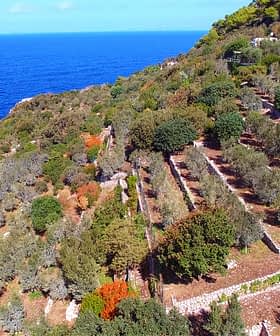The Italian Ministry of Health has received a request from olive farmers to extend the use of dimethoate for the upcoming 2021 harvest.
However, growers and producers fear there is not enough time for the necessary reviews to take place for the 120-day extension to be granted.
Before it is approved, the request must first be reviewed by the Ministry of Agricultural, Food and Forestry Policies, the National Phytopathological Service and regional services.
See Also:Olives Among Foods with Lowest Level of Pesticide Residues in Europe, Study Finds“The ban on the use of dimethoate is already putting the olive farms in the area in crisis, precisely because there are no equally effective alternatives,” said Lapo Baldini, the director of the Tuscan chapter of the Italian Confederation of Farmers (CIA).
“Ovicidal products, whose practical effectiveness has yet to be demonstrated, are more difficult to use than a larvicide such as dimethoate, which acts in a much wider range,” he added. “Copper and kaolin (fungicides) are deterrents to the olive fruit fly but do not solve, as we have already seen, the problem in cases of massive fly attacks.”
Given the technicalities and bureaucracies involved in the process, it is unlikely the farmers will have their request granted before the end of September.
By then, it will be too late for olive farmers to use dimethoate effectively, considering the supply chain restrictions.
While the dimethoate ban took effect in 2019, concerned European Union member states applied for an extension for using the pesticide, which lapsed in October 2020.
With hopes of a new extension dwindling, olive farmers are hard-pressed for alternatives as they prepare for a season of fighting the olive fly without relying on dimethoate.
See Also:Concerns About Dimethoate Ban Among French Olive GrowersOlive farmers still can use pesticides with the active ingredients of fosfmet and deltamethrin. The former works as an ovicidal and partially larvicidal product, while the latter has an adulticidal effect.
The only problem with both of these two active ingredients is that they tend to have a residual effect on the oil when used within 60 to 90 days of the harvest. This precludes many extra virgin olive oils produced in this period from being exported abroad, specifically to the United States.
The only other alternative is using acetamiprid as it has ovicidal and partially larvicide actions and low residuality. However, its use is limited to two treatments annually.
This leaves farmers in a tricky position. It is not advisable to rely on a larvicidal control method, especially in areas with a high infestation, as the olive fly can go through three to four generations from July to October.
To fight the olive fly menace, farmers require an adulticide intervention in the first generation where the infestation is low or medium and, when necessary, follow it up with a larvicidal approach.









